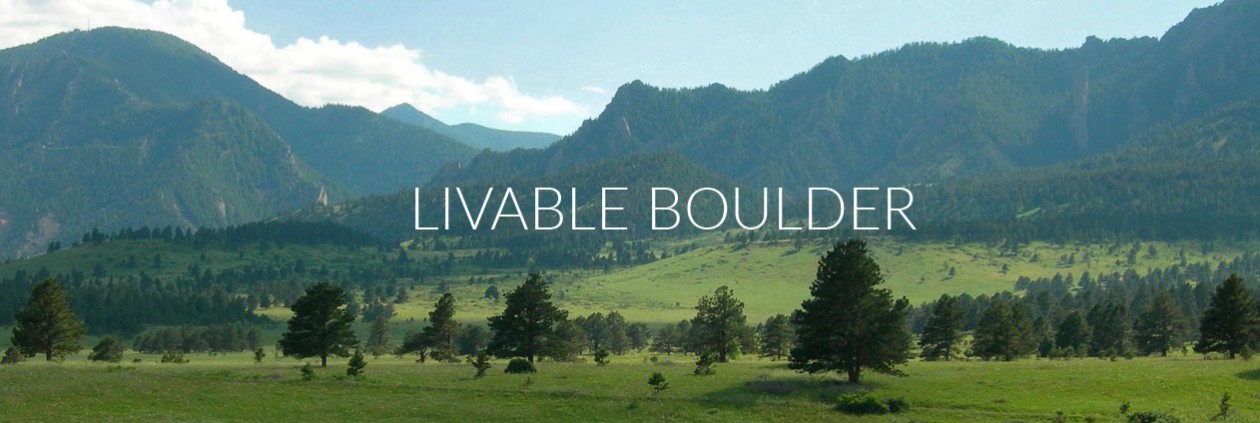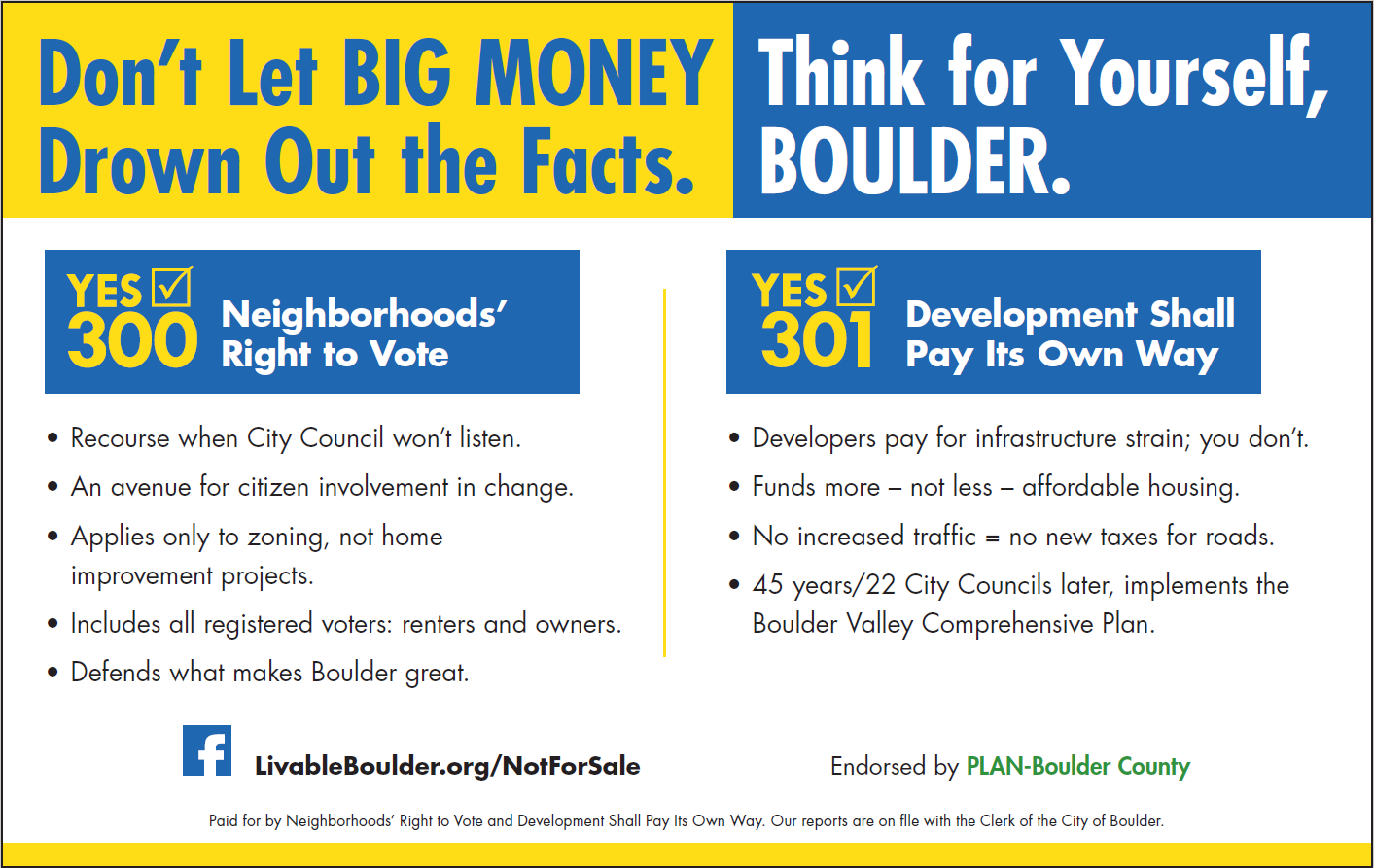http://www.dailycamera.com/guest-opinions/ci_28976558/mike-marsh-brink-growth-explosion
By Mike Marsh
Ecology science’s central precept is the notion of carrying capacity. It’s a law of nature. Nothing escapes it. It isn’t elitist. It’s science.
Every bioregion on Earth has a maximum carrying capacity. Among Boulder’s several limiting factors are water resources in this semi-arid climate.
In equilibrium theory, if somewhere is more desirable than elsewhere, more and more people will move there. Quality of life decreases as the place becomes more crowded, until it’s no more desirable than any other place. At that point, equilibrium is reached. Will this be Boulder?
In the man-made world, a city’s infrastructure also has a carrying capacity, which new growth and development frequently exceed. So either: 1) Services are degraded (traffic mitigation lags, traffic worsens, recreation centers don’t keep up, etc.), or, 2) More likely, the city’s infrastructure has to be improved. That costs big money. Those costs are inescapable. The question is who pays? Do developers of the new development, who profit from it, pay? Or do they profit, and all the rest of us pay?
All residents end up paying higher fees for traffic fixes, city rec centers, city services, etc. because growth doesn’t pay its way. And growth increases even more, because it’s being subsidized. It avoids true-cost pricing and enjoys an artificial cost environment. Any business flourishes in that scenario. Measure No. 301 rightly assigns the increased infrastructure costs to those who trigger the need for it, and who profit from it.
Colorado Springs’ population rose from 70,000 in 1960 to 416,000 in 2010 — a 600 percent increase in 50 years. A 600 percent increase for Boulder in 50 years would mean 615,795 Boulderites by 2065. These are the implications of unbridled growth. Boulder is heading there, which is why we need measures 300 and 301. They inject fairness to Boulder’s development arena. They also allow citizens a vote in their neighborhoods’ futures.
When 15 council candidates were recently asked for specific population numbers regarding how big they thought Boulder could grow, only three could give an actual number estimate. (If you don’t have at least a general concept in mind, you’re probably going to wind up somewhere you didn’t intend to go.)
No one’s asking (or answering) the hard questions about how big we’re going to grow. There’s little to keep Boulder from following Colorado Springs. Growth control advocates in the Springs were also called “anti-business NIMBYs.”
But some communities are waking up to Colorado’s growth explosion. Last March, Littleton voters passed two citizens’ growth management initiatives, because their local government wasn’t seriously addressing growth. As in Boulder, Littleton citizens backing the growth management initiatives were vastly out-funded by heavy hitting builders and realtor groups. The National Association Realtors’ (NAR) dropped nearly $20,000 on Littleton to try to defeat their citizen initiatives.
But Littleton citizens’ growth management initiatives passed. Voters there realized their community was getting played by Big Money. Will Boulder voters realize it?
NAR just donated $16,000 to conduct a Boulder “push poll” that wasn’t even a poll — it was a ruse for spreading misinformation and distortions about two reasonable, responsible, and fair initiatives. Out-of-state real estate investment companies are also donating thousands to defeat Boulder’s citizen initiatives.
Citizen initiatives created Boulder’s Blue Line and 55-foot height limit in the face of a recalcitrant city government. Those citizens were called every “anti-” name imaginable. Critics said they’d hurt the economy, stop Boulder from growing, etc.
Boulder is on the brink of “super-sized” mega-growth. Baseline Zero was my awakening. In measures 300 and 301, we citizens have an opportunity, to adopt sensible, fair growth management policies before it’s too late. If they pass, Boulder can stay a manageable, human-scale size.
Conversely, mega-growth interests will take rejection of 300 and 301 as a mandate for unbridled growth. After his second election, George W. Bush said, “I’ve earned political capital…now I intend to spend it.” Unfortunately, local developers will say this. There is momentum in elections. No on 300 and 301 will result in increased growth, more traffic, towering buildings blocking the mountains, and an exceeding of our semi-arid region’s carrying capacity. Politically, it will trigger years of mega-growth councils and mega-growth Planning Boards.
If 300 and 301 don’t pass, mega-growth momentum could lead to proposals to build on Open Space, doubling and quadrupling neighborhoods’ densities (without them having any say) and a rapid acceleration toward a Boulder population above 250,000 residents.
It’s our choice. Vote Yes on 300 and 301.
Mike Marsh lives in Boulder.

